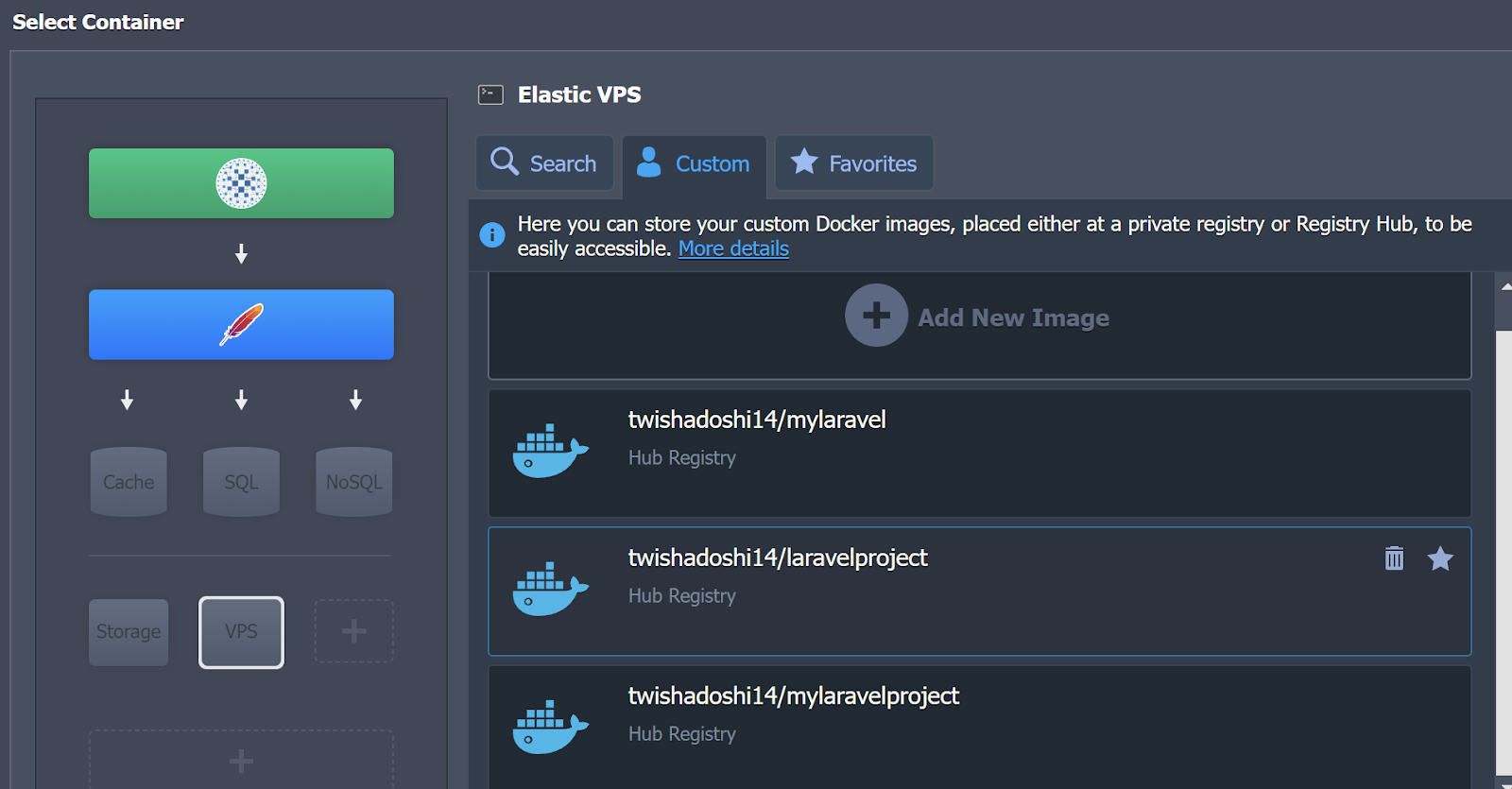Container Types and Use Cases
At AccuWeb.Cloud, we leverage two key containerization technologies: system containers and application containers, each serving distinct purposes within our platform:
System Containers
Within AccuWeb.Cloud, system containers function as lightweight virtual machines, encapsulating entire operating systems along with their dependencies and libraries. These containers offer robust isolation and consistency across diverse computing environments.
They are particularly valuable when multiple applications with varying dependencies need to coexist on the same host or when specific OS-level configurations are necessary. System containers power essential system-level tasks such as running background services, managing system resources, and hosting critical infrastructure components like databases or web servers.
Application Containers
Application containers at AccuWeb.Cloud focuses on packaging and deploying individual applications and their dependencies in a portable, lightweight environment. Unlike system containers, application containers do not include an entire operating system; instead, they contain only the necessary components required to execute a specific application.
This streamlined approach facilitates rapid deployment, scaling, and resource utilization. Application containers are particularly well-suited for modern microservices architectures, enabling developers to decompose applications into smaller, independent services that can be deployed and managed separately. They promote consistency and repeatability across different deployment environments, making them ideal for cloud-native applications and DevOps practices.
The platform presents users with a variety of container types tailored to different needs:
Certified Managed Containers
Pre-configured containers optimized for specific applications or services, ensuring seamless deployment with guaranteed compatibility and performance.
Virtual Private Servers (Elastic VPS)
Scalable and customizable virtual environments allow users to deploy and manage applications with flexibility and resource control.
Custom Docker Containers
Users can create and deploy bespoke Docker containers, tailoring them precisely to their requirements for enhanced control over dependencies and configurations.
Docker Engine CE (Docker Native)
Leveraging Docker’s native containerization technology, users can package, distribute, and run applications consistently across diverse environments.
Kubernetes Cluster
Ideal for complex, containerized applications, Kubernetes clusters provide advanced orchestration and scaling capabilities, automating deployment and ensuring high availability for distributed applications.
1. Certified Manages Containers
The platform highly recommends certified containers as the primary choice for customers. These containers provide a convenient and reliable option, offering a variety of pre-configured and managed software stacks.
Users can easily create flexible topologies tailored to their needs, incorporating essential components such as application servers (Java, PHP, Node.js, Ruby, Python, or Go), load balancers, databases, and more. This approach streamlines the deployment process, ensuring compatibility and optimal performance while reducing setup complexity for users.
Typically, these containers also enjoy supplementary integrations, including automated configuration aligned with resource (cloudlet) scaling thresholds, automatic installation of SSL certificates, streamlined application deployment processes, integrated auto-clustering capabilities, seamless delivery of security patches, and various other enhancements.
2. Virtual Private Server
A prime illustration of a system container implementation is exemplified by the virtual private server (VPS). AccuWeb.Cloud provides Elastic VPS containers featuring pre-installed operating systems such as CentOS, Ubuntu, and Debian. These containers are essentially pure OS-based environments devoid of additional customization or installed software. They offer an ideal solution for containerizing legacy applications, requiring minimal to no alterations during migration from virtual machines (VMs).
3. Custom Docker Containers
The Custom Docker Container feature on AccuWeb.Cloud involves deploying a Docker image compatible with the supported OS and architecture within the platform’s system container. This setup ensures compatibility with most of AccuWeb.Cloud’s distinguishing features, including built-in vertical and horizontal scaling. Essentially, your custom Docker image’s filesystem is unpacked inside the system container runtime.
Compared to certified managed containers, this option offers a wider range of software stacks. Users have the flexibility to choose from a vast selection of third-party Docker images available on platforms like Docker Hub or other compatible public or private container registries. However, it’s important to note that while this option provides greater flexibility, the operability and compatibility of software within AccuWeb.Cloud is contingent upon the management practices of respective third-party image maintainers.
4. Docker Engine CE
The platform seamlessly integrates with Docker Engine Community Edition, operating within system containers while maintaining complete compatibility with the native Docker ecosystem.
This integration within the platform enables users to seamlessly leverage the core tools of Docker container technology, including:
I) Docker Engine
This component processes Dockerfile manifests or executes pre-built container images, facilitating container creation and management.
II) Docker Registry
Serving as a repository, the Docker Registry stores and grants access to a wide range of public and private container images intended for deployment via Docker Engine.
III) Docker Compose
With Docker Compose, users can easily assemble multi-component applications by defining all necessary configurations within a single compose file, simplifying deployment and management tasks.
IV) Docker Swarm
The platform incorporates Docker Swarm, representing a cluster of interconnected Docker nodes, allowing for efficient orchestration and scaling of containerized applications across multiple hosts.
V) Kubernetes Cluster
Application containers are effectively managed and orchestrated through the utilization of Kubernetes within the platform. Kubernetes is an open-source platform specifically engineered for deploying and managing fault-tolerant containerized applications. It excels in handling complex tasks of container orchestration, including deployment, service discovery, rolling upgrades, self-healing, and security management.
In simpler terms, the platform utilizes Kubernetes with its orchestration capabilities, offering seamless interoperability for projects designed with Kubernetes in mind. The primary advantage of this Kubernetes implementation is its advanced pay-per-use model, effectively resolving right-sizing issues and enhancing cost efficiency for hosting multiple containers.















